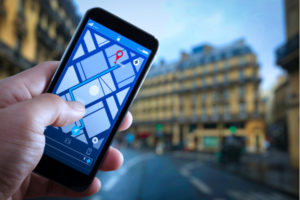
What if a stranger you maybe saw once could track your every move? They could follow you home, or to the office, or even to that isolated park where you like to hike. Apple’s AirTags have made tracking other people discreetly simple. In an acknowledgment of the danger posed by AirTags, Apple has released a safety guide. Dalvin Brown reports for The Wall Street Journal:
Apple Inc.’s AAPL +0.19% AirTags help you find your lost keys or bag. They can also be used in ways that spark privacy and safety concerns—such as stalking or other surveillance. Those concerns prompted Apple to publish an AirTag safety guide last week.
You can detect unwanted AirTag tracking. It’s easier if you use Apple devices, but in a rare move, the company also built a detection app for Android.
When AirTags went on sale in April 2021, the bottle-cap-size Bluetooth devices promised to give iPhone users a way to locate their personal items, much like the Tile trackers that have been on the market for years. You can attach AirTags to your purse or keys. Later, if you need to, you can fire up your iPhone, and track the items to their precise location within seconds.
Our colleague Joanna Stern reviewed AirTags when they came out. She said they worked better than competing devices at finding everything from a misplaced work ID to a lost pet—but she warned they could easily be used to pinpoint humans.
In December, the West Seneca, N.Y., police department said it received two reports that AirTags were “believed to have been placed on unsuspecting owner’s vehicles.” Police in Iowa confirmed reports of similar incidents. In January, a person in Pennsylvania reported a suspicious AirTag notification to police after possibly being followed home from a movie theater.
Unwanted tracking isn’t unique to AirTags; other trackers could be used in a similar way. But AirTags’ pinpoint accuracy—and their high-profile maker—have put them in the spotlight.
iPhone alerts have been key to revealing covert tracking. Apple’s devices automatically pop up notifications if unknown AirTags have been in their vicinity over time. For Android users, Apple introduced a Tracker Detect app in December to sniff out nearby AirTags.
With iPhones, rogue AirTag detection is turned on by default in the Find My app.
“That’s a big benefit,” said Asymco analyst Horace Dediu, who follows Apple. “On Android, those are not defaults. If users are not proactive, they might be under more of a threat.”
An AirTag emits a chime 8 to 24 hours after being separated from its owner. People who have neither a compatible Apple product nor an Android device with the Tracker Detect app might be made aware of the presence of an AirTag this way.
Read more here.



